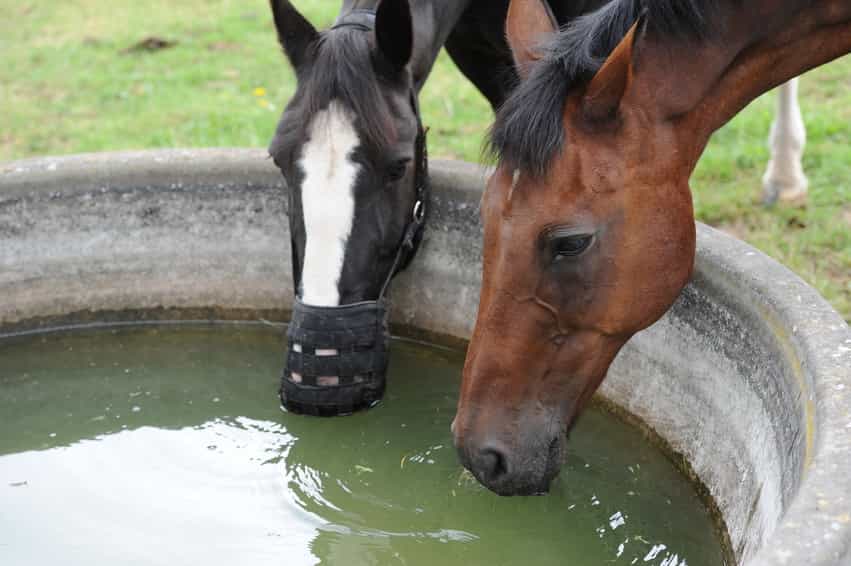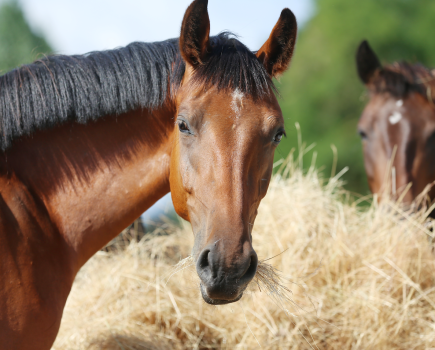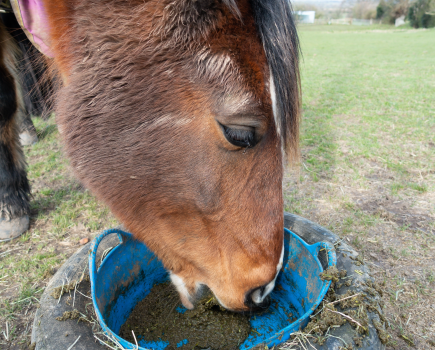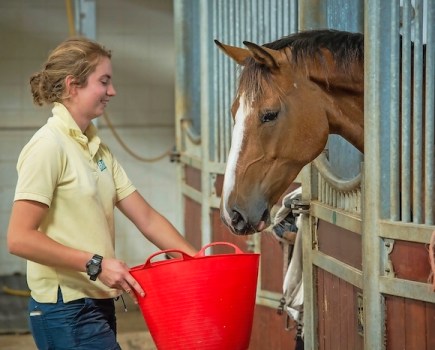Keeping your horse hydrated is vital for his health. Water is an essential nutrient to aid your horse’s digestion, temperature control and joint lubrication. Here, vet Anna Quiggin shares six simple ways to keep your horse hydrated.
1. Give your horse access to clean water
If your horse lives out with others, ensure there’s no competition for water by providing plenty of troughs at various locations around the field.
This will also help to avoid the area around the trough getting poached, and means any less dominant horses will still be able to drink whenever they need to.
2. Take familiar water with you
When you move yards or stable overnight at a competition your horse may refuse to drink ‘strange’ water.
Take a supply of water from your own yard in a clean container.
3. Add salt to your horse’s diet
If your horse doesn’t appear to be drinking as normal, stimulate his thirst by adding salt to his diet.
This can be done by either giving him access to a salt lick, or adding table salt to his hard feed.
It’s important not to go overboard with your horse’s salt measure as too much can act as a diuretic and increase fluid loss.
4. Soak your horse’s hay
When your horse grazes on moist grass he takes in water, so if he’s stabled, consider soaking his hay to increase his fluid intake.
This is because dry forage can reduce hydration as it pulls water into the gut and out of the circulatory system.
5. Cool your horse off
Your horse loses water through sweating, especially during intense exercise, so you’ll need to help him cool off and rehydrate.
This can be achieved by cooling him off quickly.
Simply cover him in cold water by using a horse or sponge, then scrape off the excess water.
Repeat this until his temperature returns to around 37.5 to 38.5°C.
6. Ensure your horse gets salts and minerals
If your horse is in work and isn’t fed an electrolyte, he may be deficient in essential salts and minerals that are lost through sweating, urine and faeces.
Give your horse an electrolyte on a daily basis, not just in the run up to a competition, to replace these salts.
These can be mixed with water, feed or given in a syringe. Fresh water should always be available.









